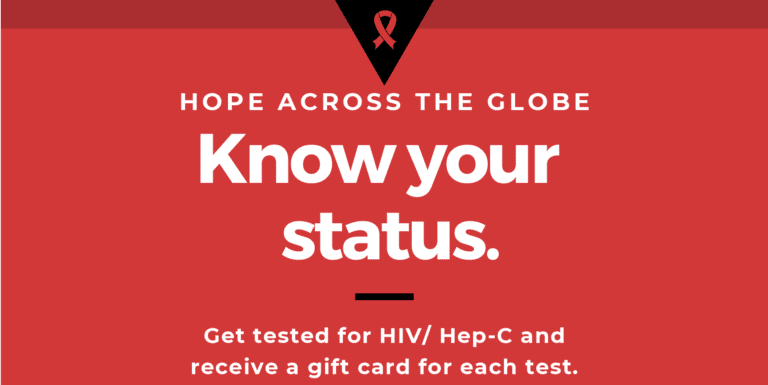How Is Herpes Transmitted Non Sexually
Living in Jacksonville, Florida, you might have come across discussions about sexually transmitted diseases (STDs). One of the most common misconceptions is that herpes spreads exclusively through sexual contact. However, herpes can be transmitted through various non-sexual means, a fact often overlooked. In this guide by Hope Across The Globe, we delve into the lesser-known avenues through which herpes can be transmitted, shedding light on crucial information for the community in Jacksonville and beyond.
What is Herpes?
Before diving into its modes of transmission, let’s understand what herpes is. Herpes is a viral infection caused by the herpes simplex virus (HSV). There are two main types: HSV-1 and HSV-2. While HSV-1 typically causes oral herpes (cold sores), HSV-2 is commonly associated with genital herpes. However, both types can infect the mouth and genitals.
Non-Sexual Transmission of Herpes
Contrary to popular belief, herpes can be transmitted through non-sexual activities and everyday interactions. Here are some scenarios where herpes transmission can occur:
1. Direct Contact
Herpes is highly contagious and can spread through direct contact with an infected person’s saliva, sores, or blisters. This can happen through kissing, sharing utensils, or using the same towels. Even a peck on the cheek or a hug can lead to transmission if the person has active lesions.
2. Indirect Contact
Herpes can also be transmitted indirectly through objects contaminated with the virus. For instance, sharing lip balm or razors or even touching surfaces with active herpes lesions can lead to transmission. It’s essential to be cautious in environments where personal items are shared, such as gyms or communal living spaces.
Read More: The Ultimate Guide to Understanding Human Papillomavirus Infection
3. Oral-to-Genital Transmission
While oral herpes (HSV-1) is commonly associated with cold sores, it can also be transmitted to the genitals through oral sex. This means that engaging in oral sex with someone who has oral herpes can lead to genital herpes. It’s essential to communicate with partners about any history of oral herpes to reduce the risk of transmission.
4. Vertical Transmission
Vertical transmission occurs when a pregnant woman with genital herpes passes the virus to her baby during childbirth. This can have severe consequences for the newborn, leading to neonatal herpes, which can be life-threatening. Pregnant women with herpes should work closely with their healthcare providers to manage the condition and prevent transmission to their infants.
FAQs
Q1: Can I get herpes from sharing drinks or food?
Yes, sharing drinks, food, or utensils with an infected person can transmit herpes, especially if they have active sores or blisters. It’s best to avoid sharing items that come into contact with the mouth or skin during an outbreak.
Q2: Is herpes contagious even when there are no visible symptoms?
Yes, herpes can be contagious even in the absence of visible symptoms. This is known as asymptomatic shedding, where the virus remains on the skin and can be transmitted to others. It’s essential to practice safe behaviors and disclose herpes status to partners, even if no symptoms are present.
Q3: Can I get herpes from a toilet seat?
A3. While the risk of herpes transmission from a toilet seat is shallow, it is theoretically possible if the seat is contaminated with the virus from an infected person’s skin or bodily fluids. However, this transmission mode is rare, and the virus is more commonly spread through direct or indirect contact.
Preventing Non-Sexual Transmission
Now that we understand how herpes can be transmitted non-sexually, let’s explore some preventive measures:
1. Practice Good Hygiene
Maintaining good hygiene is crucial in preventing the spread of herpes. Avoid sharing personal items like toothbrushes, razors, and towels, and wash your hands regularly, especially after contacting potentially contaminated surfaces. Additionally, avoid touching your face or genitals if you’ve come into contact with someone who has active herpes lesions.
2. Be Cautious During Outbreaks
If you or someone you know has active herpes lesions, take extra precautions to avoid spreading the virus. This includes refraining from kissing, sharing utensils, or engaging in sexual activity until the sores have healed completely. Using barrier methods such as condoms or dental dams during sexual activity can also help reduce the risk of transmission.
3. Get Tested Regularly
Regular STD testing is essential, even if you’re not experiencing any symptoms. STD testing allows for early detection and treatment, reducing the risk of transmission to others. If you’re sexually active, consider getting tested for herpes as part of your routine screening process. Many STD testing centers in Jacksonville offer confidential and affordable testing services.
Conclusion
Herpes can be transmitted through various non-sexual means, highlighting the importance of awareness and preventive measures. By understanding how herpes spreads and taking proactive steps to protect ourselves and others, we can contribute to creating a healthier and safer community in Jacksonville, Florida, and beyond. Remember, knowledge is power, and with Hope Across The Globe, we aim to empower individuals with the information they need to make informed decisions about their sexual health. If you have any concerns about herpes or other STDs, don’t hesitate to reach out to a healthcare provider or STD testing center for guidance and support.
Related Tag: HIV Testing Jacksonville






